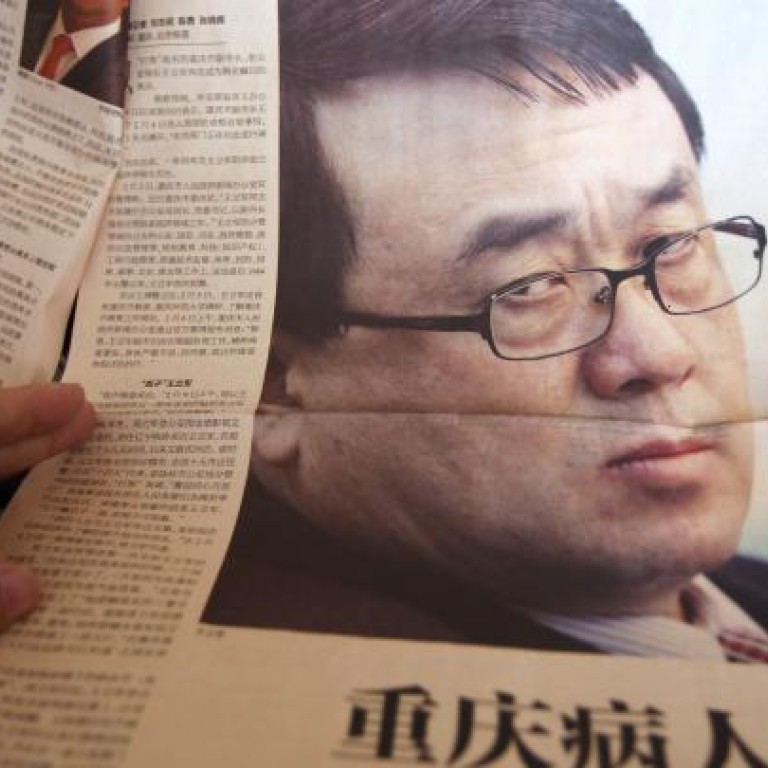
Wang Lijun: from supercop to Party traitor
Having catalysed China’s biggest political scandal in decades, Wang Lijun went within hours from a police chief who commanded fear and respect to a renegade potentially facing life behind bars.
It all fell apart one day in February when, having lost favour with his boss Bo Xilai who at the time ran the megacity of Chongqing, Wang fled to a nearby US consulate seeking refuge.
American diplomats must have listened in disbelief as Wang revealed to them Chongqing’s dark sides and, most importantly, as he detailed the assassination of a British man by Gu Kailai, the wife of Bo.
Yet in seeking to protect himself, Wang precipitated his fall – as soon as he left the consulate he was taken to Beijing and has not been seen since.
Chinese media have reported that President Hu Jintao himself branded Wang a traitor at a meeting of senior Communist party officials.
Up until that point, the 52-year-old police chief and character worthy of a spy novel had commanded fear, even hatred, for his aggressive ways.
With his steely, unsmiling gaze behind thin glasses, he had the face of an incorruptible “supercop”.
An ethnic Mongolian and martial arts expert, he counted no less than 20 scars on his body – reminders of past bullet and other wounds.
He learned his trade in the industrial northeast Liaoning province, starting as a patrolman in the 1980s and climbing the hierarchy, focusing from the start on nabbing criminals.
It was in Liaoning that he met Bo, a rising star within the Communist party. When Bo was named party secretary of Chongqing he called Wang, who would become his right-hand man overseeing security.
Together the two left their mark on Chongqing. Bo took the credit for a spectacular transformation of the city into a major economic hub in just a few years, while Wang concentrated on ridding the city of criminal gangs.
His crusade, which peaked in 2009, was marred by accusations of torture sessions and human rights violations, yet clocked up thousands of arrests.
High-profile anti-mafia trials resulted, including one in which top judicial official Wen Qiang was sentenced to death and executed.
As head of the Public Security Bureau, Wang established a reputation as the Chinese Eliot Ness, and as an unscrupulous boss who would even inspire a television series, Iron-Blooded Police Spirits.
Upon assuming the post of Chongqing deputy mayor, Wang seemed to move even further beyond the reach of critics, who noted among other things his penchant for luxury watches and suits.
Methodical and prudent, he left nothing to chance – he quietly recorded Gu when she confessed her murder and then secretly took a sample of the victim’s blood.
His passion for crime fighting even led him to design and patent a red raincoat for the Chongqing police force.
Trained in forensics and able to carry out his own autopsies, Wang was also named an honorary research professor by the US-based Henry C Lee Institute of Forensic Science.
